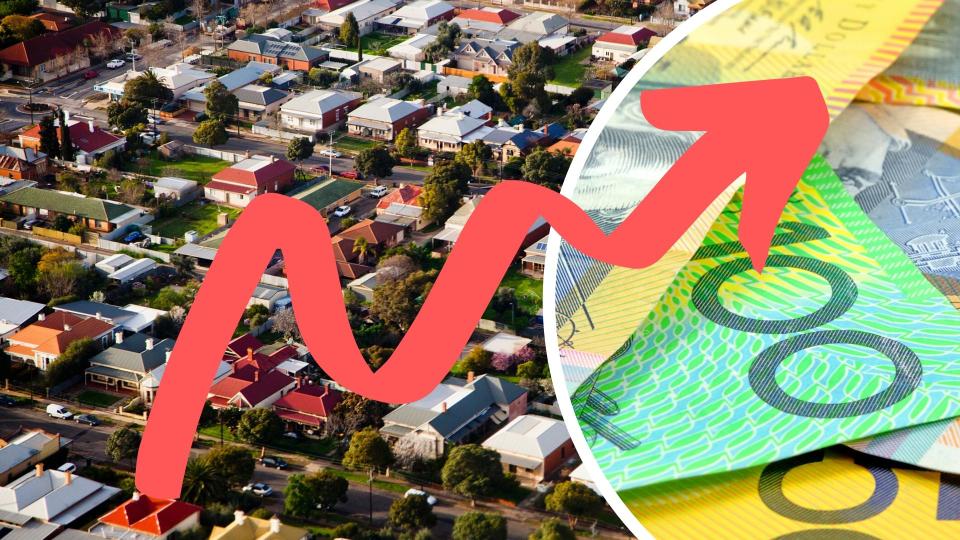When will interest rates start to rise again?

The Reserve Bank of Australia (RBA) cut the official interest rate down to its 0.25 per cent floor in March, helping homeowners stay on top of their repayments and inject cash into the economy.
Also read: A deeper, more sinister recession, is now on the cards
Also read: RBA's next move will be 'boring': Economist
Also read: The property markets that are thriving because of Covid-19
But as the end of the banks’ six-month mortgage holiday looms, and the scale of the recession becomes clearer, the question turns to how long rates will remain at this record low.
According to Deloitte Access Economics partner Chris Richardson, mortgage-holders have a while until they need to worry about rising rates.
“Globally and locally, interest rates will be nailed to the floor for years,” he said in Deloitte Access Economics’ quarterly business outlook report.
“That’s because this is a big recession, inflation is as dead as a doornail, governments will bow out of their support, leaving it up to central banks to repair economies, economies are more accident prone than ever before, so central banks will be super cautious and, finally, because interest rates are more powerful than ever.”
That last fact is critical, he said, as the global debt-to-income ratio was at a record high in 2008, before growing even higher this year.
“Given that governments are currently piling on the pounds of even more debt, that says interest rates are a hugely more powerful lever than they’ve ever been before,” Richardson said.
“Even if they go up just a bit, they’d take an enormous amount out of economies. That’s why they’ll stay super low.”
The RBA is set to make its interest rate decision for July on Tuesday afternoon, with all experts and economists on Finder’s interest rate panel predicting the bank will keep rates on hold.
AMP Capital chief economist Shane Oliver said rates will stay on hold for “at least” another three years, while ABC Bullion’s Nicholas Frappell said Australians shouldn’t expect an increase until at least 2022.
“The RBA have made it clear that, for now at least, they don't see negative rates as being necessary or effective. So I think the next move will be up, but it will be quite some time into the future – beyond the end of the forecast horizon in the survey (Q4 2022)," BIS Oxford Economics’ Sarah Hunter said.
Low interest rates mean big savings
However, while interest rates are lower than ever, many Australians aren’t taking full advantage.
New research from Canstar found 58 per cent of mortgage holders said their interest rate could be lower, but that that level was “okay”.
And 24 per cent said their interest rate was too high.
“Mortgage holders are their own worst enemy. Four in five people know they are paying too much on their loan, and almost two thirds say that it’s okay. You can’t settle for okay when it comes to your biggest bill each month,” Canstar’s finance expert Steve Mickenbecker said.
“Today’s average variable home loan interest rate of 3.46 per cent might sound okay when you remember repaying your loan at an interest rate of 8.00 per cent but it doesn’t compare to the record low rates of today.”
Mickenbecker said an Australian with a 3.46 per cent interest rate is paying around $3,288 more a year compared to the lowest variable rate of 2.17 per cent.
Similarly, swapping from the average three-year fixed rate of 2.61 per cent to the lowest available offer of 1.99 per cent, borrowers would save an extra $1,524 a year.
“If you know your home loan interest rate is too high, now is the time to put the knowledge into action. We’ve never seen a home loan market like we have now where lenders are so keen to undercut their competitors’ rates.”
And it could be a critical saving: according to Deloitte Access Economics, it will take a long time for wage growth to return to strength.
“Wage gains – already weak – are set to fade further,” Richardson said.
“The nascent recovery in wage growth had already run into heavy weather through 2019. Now the coronavirus crisis has thrown a large spanner into wages.
“Jobs have been lost (even with JobKeeper, there are an extra 835,000 people who’ve lost their jobs since COVID hit, and business profits are in freefall, and that combination says wages are in the firing line too),” he said.
Deloitte said wage growth will likely remain below inflation until 2024-25.
Join the Women’s Money Movement on LinkedIn and follow Yahoo Finance Australia on Facebook, Twitter and Instagram.
Follow Yahoo Finance Australia on Facebook, Twitter, Instagram and LinkedIn.

 Yahoo Finance
Yahoo Finance 
